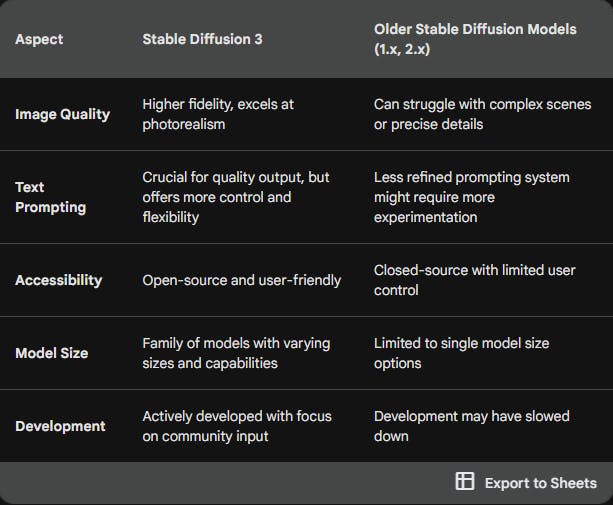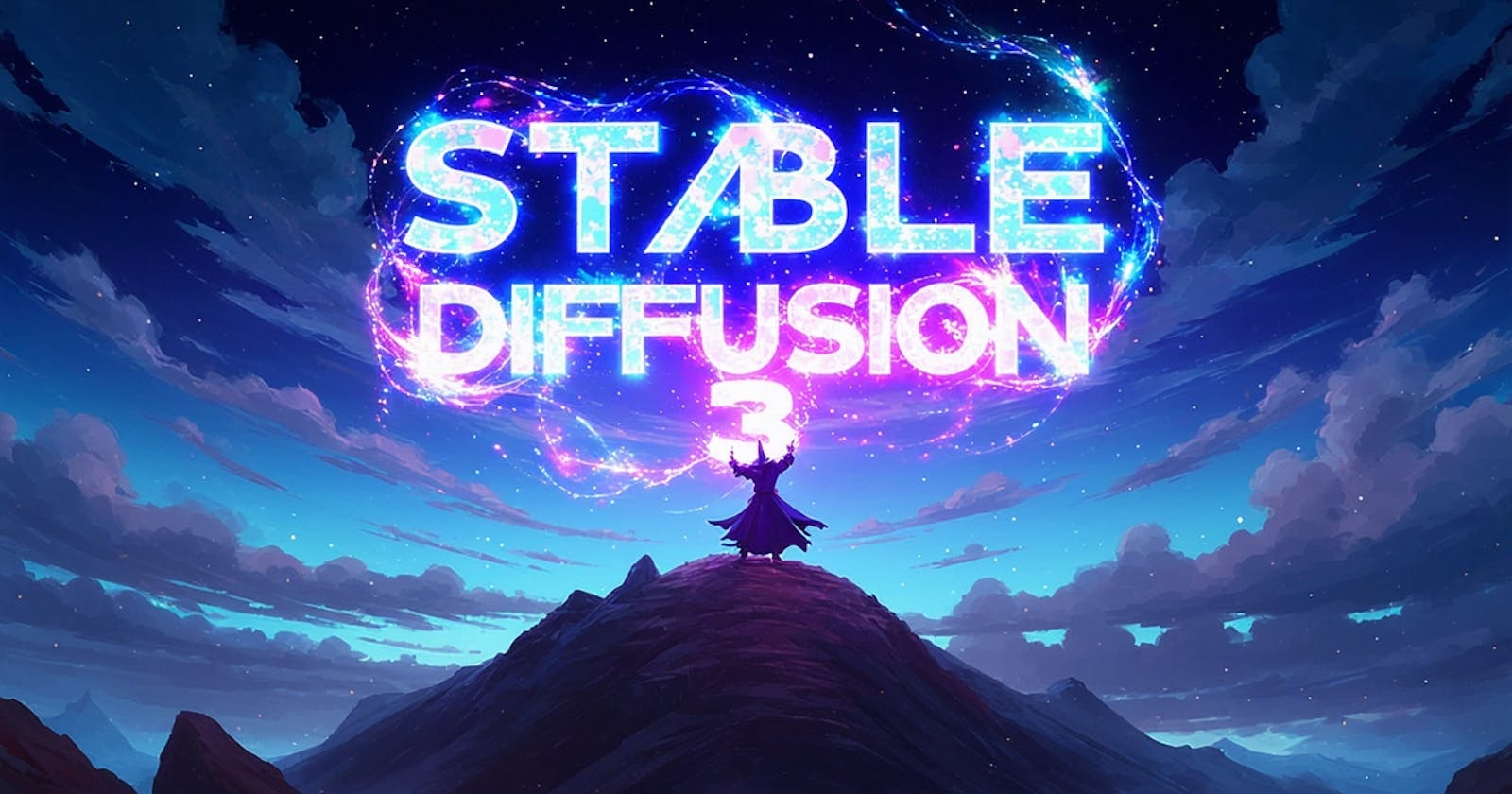Stable Diffusion 3: Pushing the Boundaries of Text-to-Image Generation
The Future of AI Art: How Stable Diffusion 3 is Paving the Way
Table of contents
Stable Diffusion 3, a new generation of text-to-image AI models from Stability AI, is making waves in the creative community. This isn't just a single model, but a family of models with varying sizes and capabilities, ranging from 800 million to 8 billion parameters. This allows users to choose between faster processing times and higher image quality based on their needs.
Here's what makes Stable Diffusion 3 stand out:
Unleashing the Power of Diffusion Transformers: This innovative architecture combines the strengths of diffusion models (excellent at detail in small regions) and transformers (great at overall image layout) to create stunningly realistic and cohesive images.
Open-Source Accessibility: Stability AI is committed to democratizing AI technology. Stable Diffusion 3 models are open-source, making them free to use and experiment with. This fosters creativity and innovation within the AI art community.
Prioritizing User Preferences: The development team has made interesting trade-offs to improve accessibility. While a memory-intensive text encoder was removed, the impact on visual aesthetics is minimal. This ensures users get high-quality images without needing top-of-the-line hardware.
Focus on Safety and Refinement: Currently, in an "early preview" stage, Stable Diffusion 3 is being tested by researchers. This allows Stability AI to gather feedback and ensure the model is safe and unbiased before a public release.
Stable Diffusion 3 has the potential to revolutionize the way we create art and interact with AI. Its focus on accessibility, user-friendliness, and powerful image-generation capabilities make it an exciting development in the field.
Comparison with Older Stable Diffusion Models:

Overall: Stable Diffusion 3 shows significant improvements in image quality, user control, and accessibility compared to older versions. The open-source nature and active development hold enormous potential for future advancements.
Strengths and Limitations:
Image Fidelity: Stable Diffusion 3 excels at generating photorealistic images. However, some users report occasional struggles with complex scene layouts or precise details.
Text Prompting: While powerful, the quality of the output image heavily relies on the quality of the text prompt. Developing clear and concise prompts can take practice, especially for beginners.
Computational Requirements: While the smaller models are less demanding, the larger ones can require powerful GPUs for efficient operation.
Applications and Use Cases:
Concept Art and Illustration: Stable Diffusion 3 is a valuable tool for artists and designers to generate initial concepts, explore visual ideas, and create stunning illustrations.
Creative Content Generation: Marketing agencies and content creators can leverage Stable Diffusion 3 to produce unique and eye-catching visuals for social media, advertising campaigns, and other creative projects.
Education and Research: The model's ability to generate images based on descriptions has potential applications in education and research, allowing users to visualize complex concepts or explore hypothetical scenarios.
Entertainment and Hobbyists: Stable Diffusion 3 allows anyone to unleash their creativity and generate fantastical images for personal enjoyment or artistic exploration.
The Future of Stable Diffusion 3:
Community-Driven Development: The open-source nature of Stable Diffusion 3 fosters a collaborative environment. Developers can contribute code improvements, while artists can share best practices and prompt-writing techniques.
Integration with Other AI Tools: Future iterations might integrate with other AI tools like image editing software or language models, creating a powerful creative suite.
Ethical Considerations: As with any powerful AI tool, ethical considerations around potential misuse and bias need ongoing discussion and development of safeguards.
For a deeper dive, you can explore these resources:
Stability AI announcement: Stability Diffusion 3 announcement: https://stability.ai/news/stable-diffusion-3
Technical explanation: Stable Diffusion 3 explained: https://medium.com/@onkarmishra/stable-diffusion-explained-1f101284484d
YouTube video overview: Stable Diffusion 3 YouTube video: https://www.youtube.com/watch?v=6vMq4yEwoDQ
